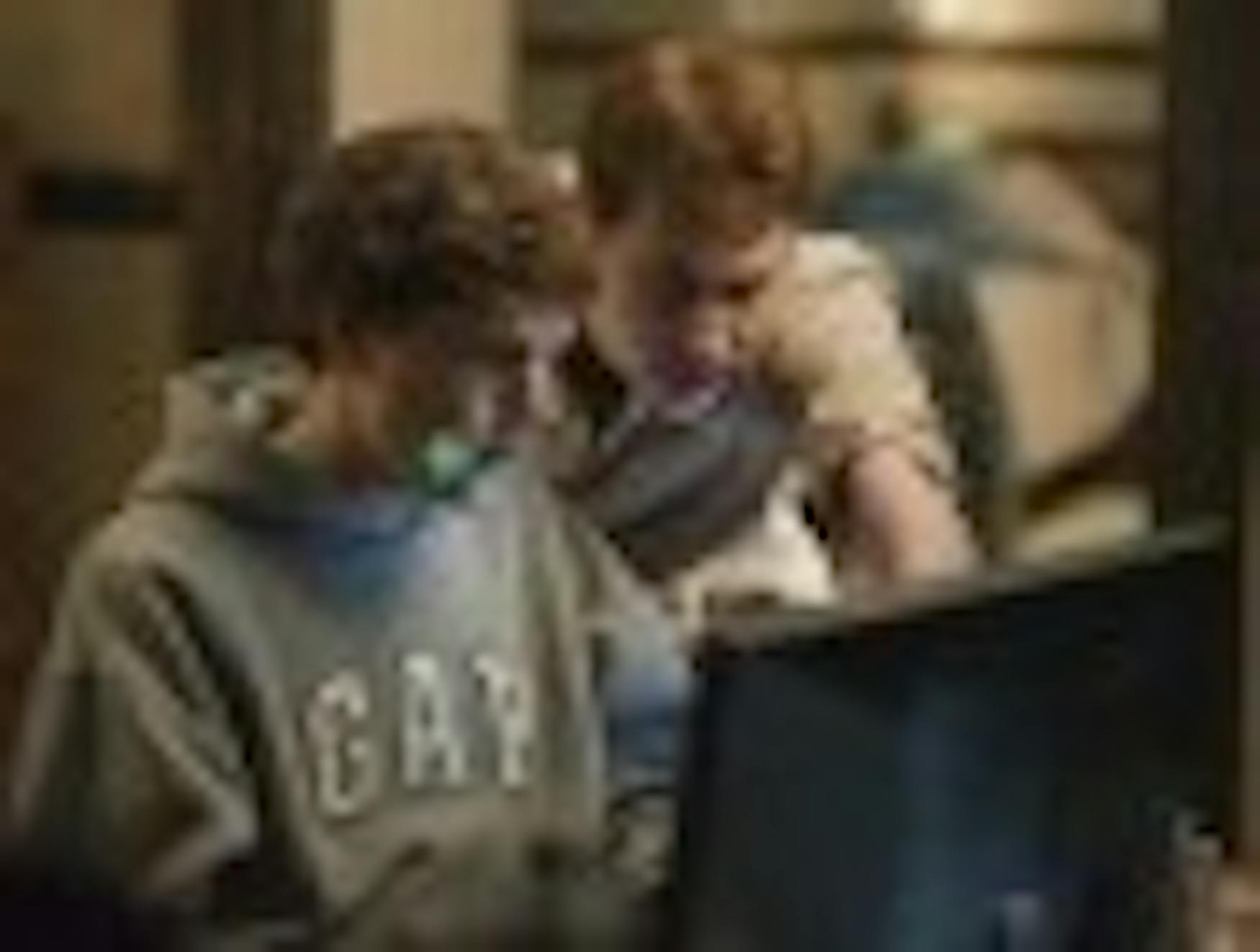Facebook story jumps to the big screen
Ten minutes into The Social Network, I realized I hadn't had this much fun at the movies in months. True, I missed Piranha 3D, but I still think it's saying something. The Facebook movie is good. No, the Facebook movie is awesome. Rewind 3 months. When I first heard that David Fincher was making a "Facebook origins movie," I felt a sharp sting of disappointment. Then I heard that Justin Timberlake was co-starring, and I nearly had a panic attack. My thoughts at that moment: "How can a movie about Facebook possibly be any good? Are the scripts in Hollywood really that bad? Justin Timberlake, why must you add insult to injury?"
I made a huge mistake: I assumed the film would be as emotionally vacuous as Facebook itself because, after all, that's what it's about, right? Wrong. The film isn't really about Facebook at all; it's about people.
Specifically, The Social Network is about a Harvard computer nerd named Mark Zuckerberg (played with nasty, quick-witted egotism by Jesse Eisenberg) who is unashamedly obsessed with increasing his social status. As Zuckerberg's girlfriend points out to us in the first scene right after she breaks up with him, the reason he won't be accepted by girls or exclusive Harvard clubs isn't because he's a nerd; it's because he's an asshole.
The film opens with Zuckerberg's breakup because it's the primary, though likely not first or last, rejection that fuels Zuckerberg's online creation. Like Sean Parker, the creator of Napster, Zuckerberg doesn't care about money, fame or girls in their own right: He cares about them as status symbols, as F-you's to a world he views as hostile and exclusive. Facebook is born out of Zuckerberg's vindictive desire to prove something to those who he felt wronged him. At its core, The Social Network is Revenge of the Nerds 2.0, and it's extremely entertaining.
From the first scene, The Social Network, like the website it derives its name from, is absolutely addictive. The film gets your pulse running without guns or an ounce of violence-it does it with people talking, thanks to Aaron Sorkin's (The West Wing, A Few Good Men) lightning-fast script. The dialogue flies 100 words a minute, and if you blink, you might miss it. Sorkin loads scenes with tension and then explodes them with one character verbally bashing another into a psychological pulp.
Everyone, including Justin Timberlake, shines in The Social Network. With Sorkin's razor-sharp dialogue flying out of their mouths, the actors don't really have any other choice. The real trick, however, is believability, and they all pull it off. Andrew Garfield, recently cast as the new Spiderman, is particularly great as Zuckerberg's cooler and calmer right-hand man, Eduardo. One of the film's best moments occurs as verbal blows begin to fly between a very pissed-off Eduardo and the über-cocky Parker (Timberlake); we realize that Eduardo can fight back, and we almost want to cheer in the aisles. Again, the battles in this movie are verbal- whoever can adequately humiliate or belittle his opponent wins.
David Fincher captures the pent-up, frenetic energy of each scene with his characteristically smooth, unwavering camera. Fincher is infamous for his fastidious directing style, and I assume he saw a thing or two of himself in Zuckerberg's do-it-perfectly-or-go-home mentality. People's feelings, for both Fincher and Zuckerberg, seem subordinate to the project at hand. Perhaps this is the shared trait that makes them each masters of their respective fields.
My only problem with The Social Network lies with a 2-minute rowing montage that appears around the center of the film. Surely, the montage serves as a break from the nonstop dialogue, yet I found it wildly out of place. The photography here, as in the rest of the film, is gorgeous, and Fincher demonstrates his proven flair for stunning imagery, but the scene is unnecessary. It's as if he placed a bizarre television advertisement smack in the middle of the film. I would willingly watch this pretty little music video on YouTube, but in the context of the film it feels uncomfortably placed.
The score, (recorded by Trent Reznor of the Nine Inch Nails) much like the Dust Brothers' Fight Club score, is dark, electronic and perfectly fitting. It gives a sinister tone to what could otherwise be fairly pedestrian scenes and, as I imagine it, sounds exactly like the music that would play in Mark Zuckerberg's head as he plans his online retribution.
I must add that the The Social Network is surprisingly funny, and many scenes play out beautifully as dark comedy. The film is at its best when the characters spit facetious insults at each other as if this was modernized Shakespeare. Is the story totally true? Does it really matter? It's like Glengarry Glen Ross with college students. What more could you ask for?



Please note All comments are eligible for publication in The Justice.